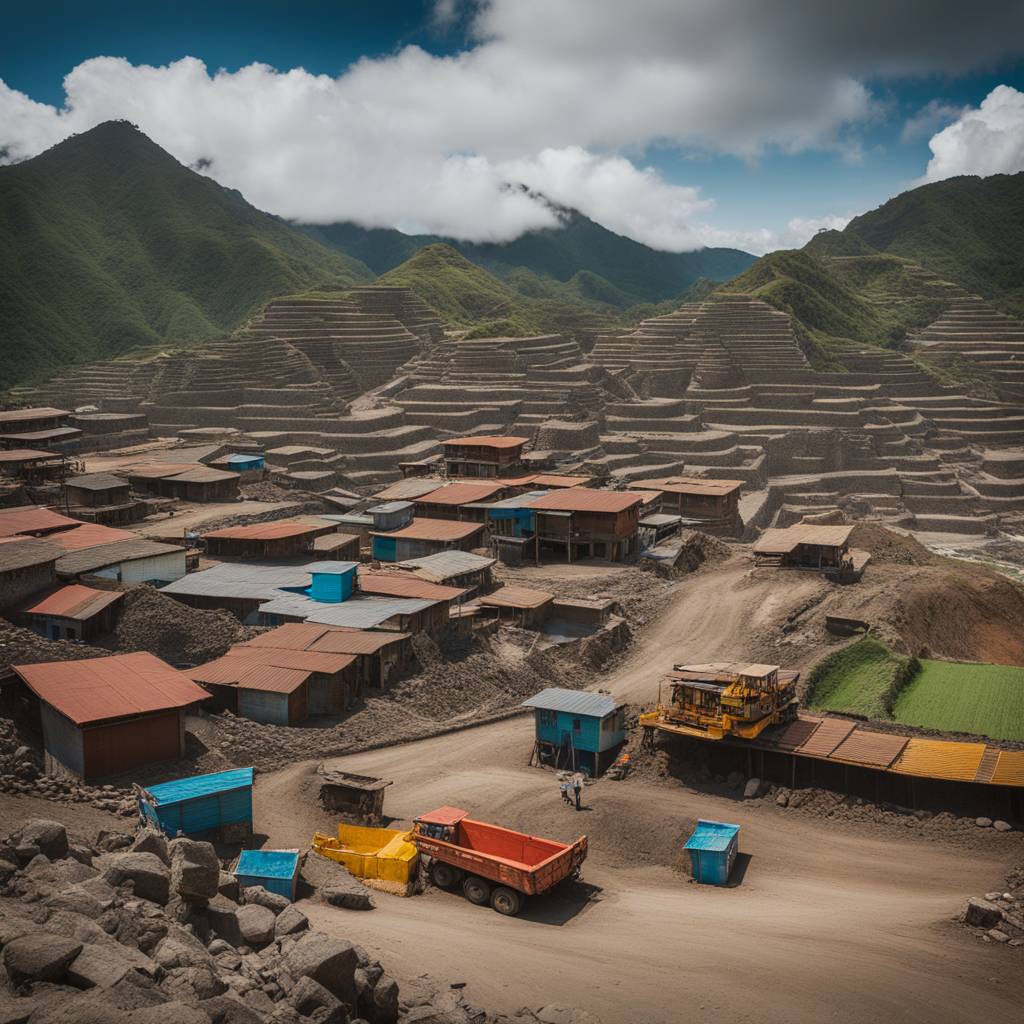Las Pampas, a community in Ecuador, has become a hotspot for anti-mining protests since last July. The protests are directed towards a mining project in the nearby town of Palo Quemado, where Atico Mining, a Canadian company, has obtained a concession to explore and exploit gold, silver, copper, and zinc deposits. Local farmers fear that mining operations will negatively impact their water sources, affecting their livelihoods. Despite assurances from Atico Mining about adhering to responsible mining standards, residents remain skeptical about the potential environmental consequences.
President Daniel Noboa views mining as a crucial driver for the economy, attracting billions of dollars in investments and creating job opportunities for communities. The government has signed contracts with mining companies, including La Plata, to further develop sustainable mining projects. However, the Confederation of Indigenous People of Ecuador criticizes these agreements, accusing mining companies of causing pollution and underdevelopment in Indigenous territories. Anti-mining protests have gathered momentum, with communities coming together to oppose mining activities that may harm their environment and way of life.
To become operational, La Plata must obtain an environmental license from the Ministry of Environment, Water, and Ecological Transition. This process involves conducting environmental consultations with residents to address potential negative impacts. However, residents in Las Pampas feel excluded from the consultation process, raising concerns about the fairness and transparency of decision-making. The divide between communities in Palo Quemado, where some view mining as an opportunity for economic growth, and Las Pampas, where residents are firmly against mining, highlights the complexities of balancing economic development with environmental conservation.
The escalating tensions between protesters and security forces underscore the deep-seated opposition to mining activities in the region. Activists claim excessive use of force by security forces, resulting in injuries and hospitalizations. The Ecuadorian Chamber of Mining dismisses the protests as politically motivated, attributing them to groups that have lost political influence. As the government considers signing a free trade agreement with Canada, concerns arise about the potential impact on mining projects and environmental conflicts in Ecuador. Canadian humanitarian organizations express unease about increasing Canadian investments in Ecuador and the implications of a free trade agreement for socio-environmental conflicts.
Despite the challenges and controversies surrounding mining in Las Pampas and Palo Quemado, local residents remain steadfast in their opposition to mining activities. The community is united in its resistance to projects that threaten their livelihoods and natural resources. As conflicts continue to escalate, there is a growing sense of division among residents, with relationships strained by differing opinions on mining. Ultimately, the fate of mining in the region will depend on ongoing consultations, community engagement, and efforts to balance economic development with environmental preservation.













